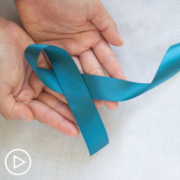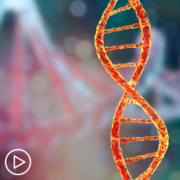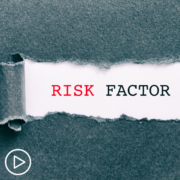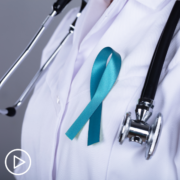Ovarian Cysts and Uterine Fibroids: Is There a Connection to Ovarian Cancer?
Ovarian Cysts and Uterine Fibroids: Is There a Connection to Ovarian Cancer? from Patient Empowerment Network on Vimeo.
Are ovarian cysts and fibroids a concern for ovarian cancer patients? Expert Dr. Ebony Hoskins shares her perspective about fibroids and cysts, what she looks for in patients, and her advice to patients to ensure their best care.
Dr. Hoskins is a board-certified gynecologic oncologist at MedStar Washington Hospital Center and assistant professor of Clinical Obstetrics and Gynecology at Georgetown University Medical Center. Hoskins sees women for gynecological malignancies, which include the treatment of endometrial, ovarian, vulva, vaginal and cervical cancers.
See More from [ACT]IVATED Ovarian Cancer
Related Resources:

|
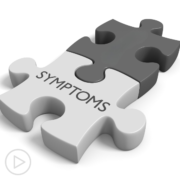
|
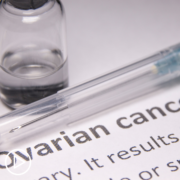
What Should Ovarian Cancer Know About Immunotherapy and Targeted Therapies |
Transcript:
Mikki:
Okay, Dr. Hoskins, are fibroids or ovarian cysts related to ovarian cancer?
Dr. Ebony Hoskins:
So from a gynecologic oncology standpoint, when I see someone who has a documented uterine fibroid, I don’t think that it’s related to ovarian cancer. Certainly when I see a woman that has ovarian cysts, that’s something that potentially could be an ovarian cancer. But then I’m looking at whether it’s a cyst, whether there’s fluid. So there’s other characteristics in the imaging that I have obtained. So I think the question is, are fibroids and ovarian cysts related to ovarian cancer? Not really, but I think it’s important that we are basing this on some objective data, right? So I can press on someone’s belly and say, “Oh, that’s fibroids.” But asking my activation tip would say, “Hey can I get an ultrasound to look at my pelvic organs?” Not just randomly, but if you, if a patient feels like it’s fibroids, let’s prove it, let’s get an ultrasound. And that will look not only at the uterus, it looks at the adnexa, which is the fallopian tubes and the ovaries, and have an objective diagnosis for what’s going on in the GYN organs and pelvis.

